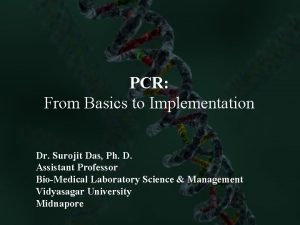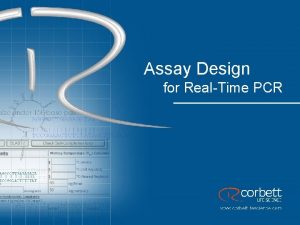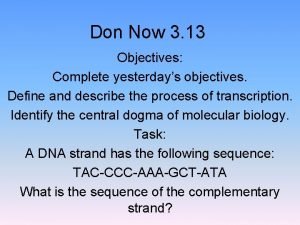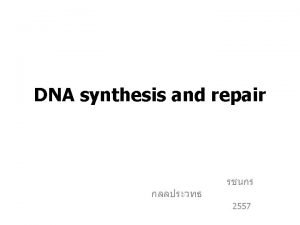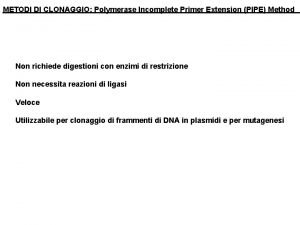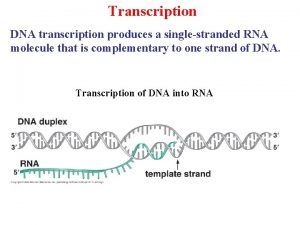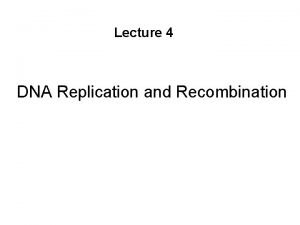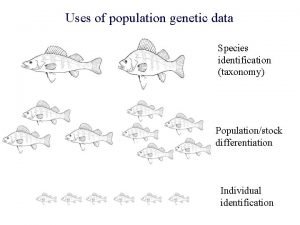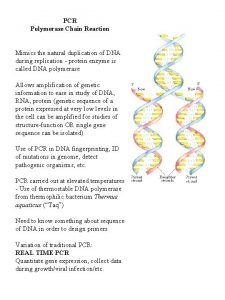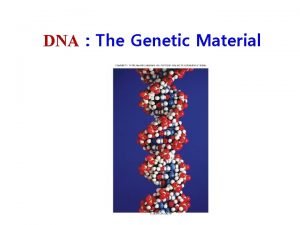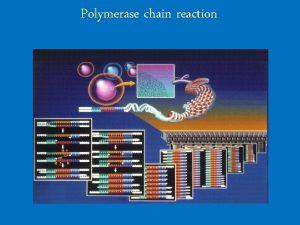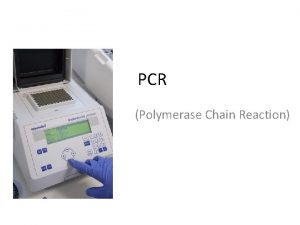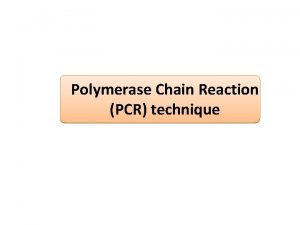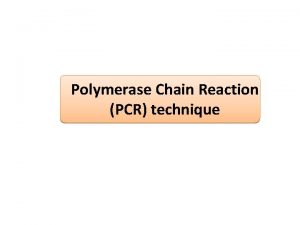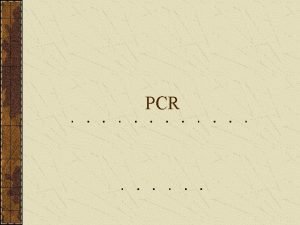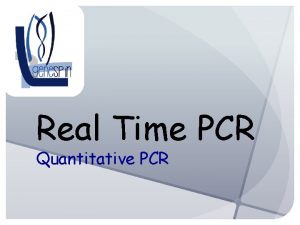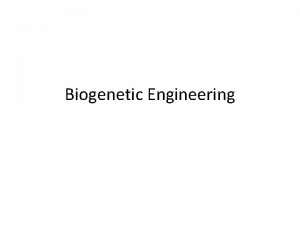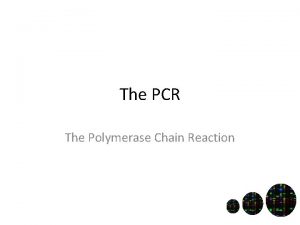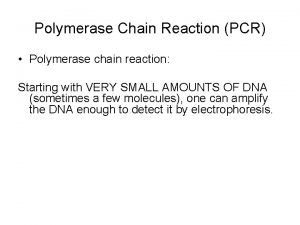Fundamentals of PCR What is PCR PCR Polymerase












- Slides: 12

Fundamentals of PCR

What is PCR? �PCR = Polymerase Chain Reaction… a technique by which a segment of DNA can be targeted and copied quickly and precisely �PCR allows us to generate thousands to billions of copies of a single piece of DNA.

Significance �PCR revolutionized modern biotechnology… �PCR allows scientists to: Clone DNA for sequencing Analyze phylogenies based on genetic similarities Analyze gene functions Detect & diagnose genetic and infectious disease Determine identity in forensic & paternity tests

PCR Basics: Reagents �PCR Reagents DNA sample Primers (short sequences of nucleotides that serve as starting points for DNA replication) Buffer Solution Nucleotides Heat Stable DNA Polymerase (usually Taq Polymerase- enzyme isolated from the bacterium Thermus aquaticus)

PCR Basics �In short… DNA sample is mixed with nucleotides and a DNA polymerase (enzyme that replicates DNA)

PCR Basics (cont. ) Sample undergoes repeated heating and cooling cycles The heat separates the double stranded DNA and DNA polymerase replicates each strand As thermal cycling continues, the DNA generated is itself used as a template for replication (chain reaction)

The Process of PCR � 3 steps in each heating/cooling cycle… 1. Denaturation 2. Annealing 3. Elongation

Denaturation �Heat to 98 -100˚C for ~ 1 minute �Heat denatures the double stranded DNA

Annealing �Temperature depends on primers being used, usually ~50 -65˚C for ~ 20 -40 seconds �Primers attach to the DNA strands, polymerase binds to the primer template

Elongation/Extension �Temperature depends on the polymerase being used, usually ~72˚C �Time depends on the length of the DNA fragment and the polymerase used �Polymerase synthesizes new complimentary strands of DNA

PCR Summary

Video Links PCR Animation DNA Replication Review DNA Polymerase
